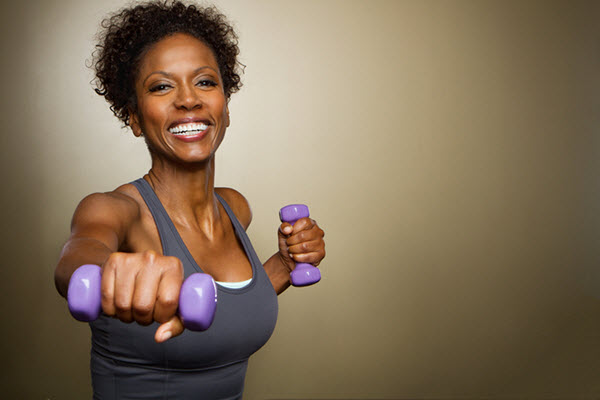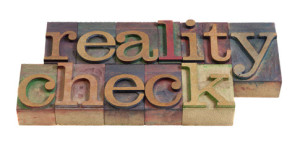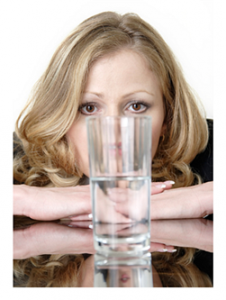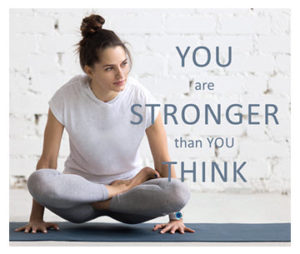At 35, I was feeling fit. I was a walker, a swimmer, and a fledgling tennis player. It was impossible to imagine a time when I wouldn’t feel vital and alive.

At 50, I was also feeling fit — physically, at least — despite two young boys doing what kids do… testing authority, patience, and parental resolve.
Appearances Are Deceiving
While I found fitness at 50 to be relatively straightforward — the “divorce diet” had done its part by leaving me skinnier than I had ever been before, and daily walking remained part of my life — not long after, things changed. At a time when my focus was on my kids and financial survival, injuries took me down. And they’ve taken a toll, for years, perpetuated by murky diagnoses and insufficient treatment.
Ironically, I nonetheless looked fit for a number of years, though I certainly was not. Appearances, as the saying goes, can be deceiving.
These days?
I’ve had some periods when I’ve been “more” fit, usually when I’ve had sustained access to physical therapy — after which I am able to do reps with small weights and stretching as I could 20 years ago (even four years ago!). Typically, the result is higher spirits, reduced pain, more go-go-go, and yes — I look more in shape.
That said, whatever focus on fitness I pursue at this point is differently motivated than it once was. As much as appearance matters to me — and it does — how I look (rather than how I feel) is lower in priority.
Yo! Fitness! What Exactly Are You?
Imagining myself “fit,” what comes to mind first are vigor, alertness, and energy with physical, mental, and emotional elements to this interpretation of the term. And I immediately picture myself at 50 before those ignominious injuries.
Next I think of strength and stamina, in particular, physical. No doubt both got me through being an “older” single parent, though it was emotional fortitude that carried me through finishing the job.
And last but not least, I imagine a body that functions with minimal pain and generally speaking, greater discipline.
But how do I measure that last? Relative to some standard for my age? Relative to my 50-year-old pre-injury self? Using some kinder, gentler standard or something more aggressive?
Will I ever feel “fit” enough to once again feel like myself?
And the Google Says…
Here is where I sigh, and sigh again. In the corner of my bedroom, nestled in a pile of laundry, are two hot pink 5-pound hand weights once used for working my arms. Nearby are a pair of bright green resistance bands for back and leg exercises.
The hand weights? No go. The resistance bands? A twice-daily routine which, I confess, I struggle to adhere to.
In an attempt to dust off my determination to do better, I looked into the benefits of isometric exercise — remember that? — for strengthening specific areas. I scanned coverage on yoga for the over 50 crowd. I spent more time considering these 13 exercises to help recover from injuries, a number of which involve stretching, resistance bands, and are precisely what I’ve been given in physical therapy — serving to remind me that my neglected weights may be out of the question, but these other options are definitely possible.
 And it goes without saying that Google should not be our guru for healing from injuries — proper medical diagnosis, recommendations and follow-up should.
And it goes without saying that Google should not be our guru for healing from injuries — proper medical diagnosis, recommendations and follow-up should.
Aging’s Impacts
Aging. Right. Reality check time.
We know that aging — even if we’re convinced that “aging gracefully” is possible — comes with “challenges.” And for some of us that means we experience a sense of loss at inevitable changes — depression may follow, and an uptick in anxiety. I was having a conversation about exactly this, just the other day, with a dear friend. I could feel her fragility, her need to grieve a self she senses is lost. All I could do — listen and empathize.
While our “aging anxiety” is a discussion for another time, we know that one way to manage anxiety (whatever its causes) is exercise. The Mayo Clinic explains how exercise eases depression and anxiety, and even a brisk walk, a swim, or other light workout can elevate mood.
Let’s also recognize that a blanket Rx of exercise isn’t an option for all of us.
Still, something is an option for most of us. So why is it so hard to do things that are good for us? And why is it so difficult for some of us to adjust expectations as we age — especially of our physical fitness and general appearance? To what extent are pop cultural rhetoric and imagery leading us abysmally astray?
Fit for What?
On the glass half full (or more) side of the equation… Aren’t there other facets of fitness that paint a prettier picture? Can we allow ourselves to acknowledge their value?
 For example, do you feel fit to go out and engage new people in conversation? Do you feel fit to thrive in your marriage, your relationship, or your dating life? Do you feel fit to provide emotional support to struggling children or an elderly parent? For that matter, how is your fitness in extending compassion to yourself in times of trouble?
For example, do you feel fit to go out and engage new people in conversation? Do you feel fit to thrive in your marriage, your relationship, or your dating life? Do you feel fit to provide emotional support to struggling children or an elderly parent? For that matter, how is your fitness in extending compassion to yourself in times of trouble?
Do you feel fit to perform the duties of your job or to learn new skills needed for a second, third, or fourth chapter?
Beyond definitions invoking physical strength and stamina, fitness is about suitability in a specific role, undertaking, or environment. I may no longer be fit for tennis or a five-mile walk, but my emotional fitness? My mental fitness?
Sure, I have my share of ragged days when I feel lousy about everything. And, in the past several years I’ve shifted away from certain activities and toward others, to “lighten” my self-imposed load. I also won’t deny that life has worn me down. But it has toughened me up at least as much and taught me to appreciate nuance. My “fitness” in the ways of self-preservation — like yours? — remains reliably intact.
Back to the… Future?
As for the trials and styles of staying physically fit — especially after “a certain age” — I can’t help but note that luck and genetics have a hand. But they are certainly not the sole determinant of how we age. What we do with what we’re dealt is enormously important.
On that score, this post from Harvard Health on rebooting workout routines over 50 is a bit alarming. Or it can be, when you realize the ways our bones, muscles, and organs change as we age, and how to better manage this reality. For me, this is an excellent reminder that fitness isn’t about a small waist or flatter abdomen, but rather, being healthy enough to pursue life with vigor, alertness, and frankly, with quality — however we define it.
 You guessed it. The proverbial “move it or lose it” is critical. What we often forget — that “move it,” in whatever form it takes, can feel pretty damn good.
You guessed it. The proverbial “move it or lose it” is critical. What we often forget — that “move it,” in whatever form it takes, can feel pretty damn good.
I admit — when it comes to exercise discipline, especially this time of year and given constraints that I simply must live with — I give up (and give in) too easily. I want to hibernate instead of doing what I can. I need to work on that. I need to remember my own strength. I need to look away from the weights and get cracking with the resistance bands.
What are you doing in the realm of keeping fit? How do you assess what you can do? What is your yardstick? Do you compare yourself to others your age? Some prescribed standard? Yourself five years ago — or five months ago?
You May Also Enjoy
Ha! Resistance bands?! That’s enough to send you straight to the hospital again for depression evaluation. ?
???
My doctor recently suggested that I lose some weight, I was 15 lbs over what I thought I was (I don’t have a scale at home) so I agreed. My existing exercise is a one hour Pilates and a one hour yoga class during the week that helps with my poor flexibility/posture. After the doctor visit, I’m adding back some cardio treadmill, I used to run regularly but that became too physically stressful so I’m trying to find a walking program on my machine that gets me into the cardio zone. No luck yet, it is difficult to get the heart rate up by walking, I barely broke a sweat this morning so still a work in progress.
Foodwise, the same doctor visit also came with poor cholesterol numbers. Whether that can be improved with better food choices remains to be seen; I’ve been essentially 90%+ vegetarian for the last two weeks along with 14/10 intermittent fasting (i.e., no snacking after dinner, late breakfast). I feel really good and I’m saving money not going out for lunch during the week.
The new regime takes planning on the weekends to prepare my lunches and dinners so sustaining this commitment will be important but I think if I see improvement in my numbers, that will make it worth the effort.
So nice to hear from you, batticus. It sounds like you have a pretty comprehensive plan.
I find starting a regimen and keeping it going depends on seeing/feeling success. Sustaining long enough to really instill habits is such a challenge, especially as noticeable fitness or other improvements aren’t always obvious or they slow in pace.
Keep us posted on how it’s going for you!
A quick update, went back to my doctor and my lipid numbers are in good shape, yea! Reached my goal weight also, so now it is just a matter of sticking to the good habits I’ve started. I’m still an occasional omnivore but it is quite easy to stick with vegetarian food once you find some recipes you enjoy. The immediate impact on my blood work and weight is difficult to ignore and serves as a personal motivation to make these habits part of my life.
At my “gym tonic” class, I shared some Instagram videos of Norma Kamali, the 73-year-old fashion designer and Pilates enthusiast. Several women in the class are in their 70s, and one is particularly capable of keeping up. She told me she also does yoga every week as well as ballroom dancing. She was wearing light makeup and her hair was done and she clearly takes care of herself. And I can attest she has the legs of a teenager. She told me, the key to staying in shape with age is to never, ever stop.
Love it!
I need to walk… every day, but I don’t. I go to the gym three days a week, where I walk on the treadmill… only five minutes… stretch and do weights. Saturday night I went to Austin to see Fleetwood Mac, by myself. When the concert let out it was raining and hundreds of people were trying to catch an Uber but I had no luck. I walked, uphill, in the rain for 20 minutes until I got somewhere I could call a cab. When I told this to the driver, he said “You are strong to walk that far.” It made me wonder if I looked old and decrepit, like I should have been lucky to walk two blocks. What I didn’t tell him was that while I could have done without the rain, the walk was easy.
You got a grin and a chuckle out of me on this…